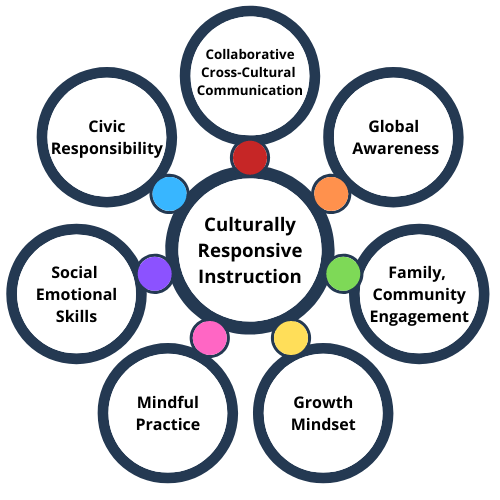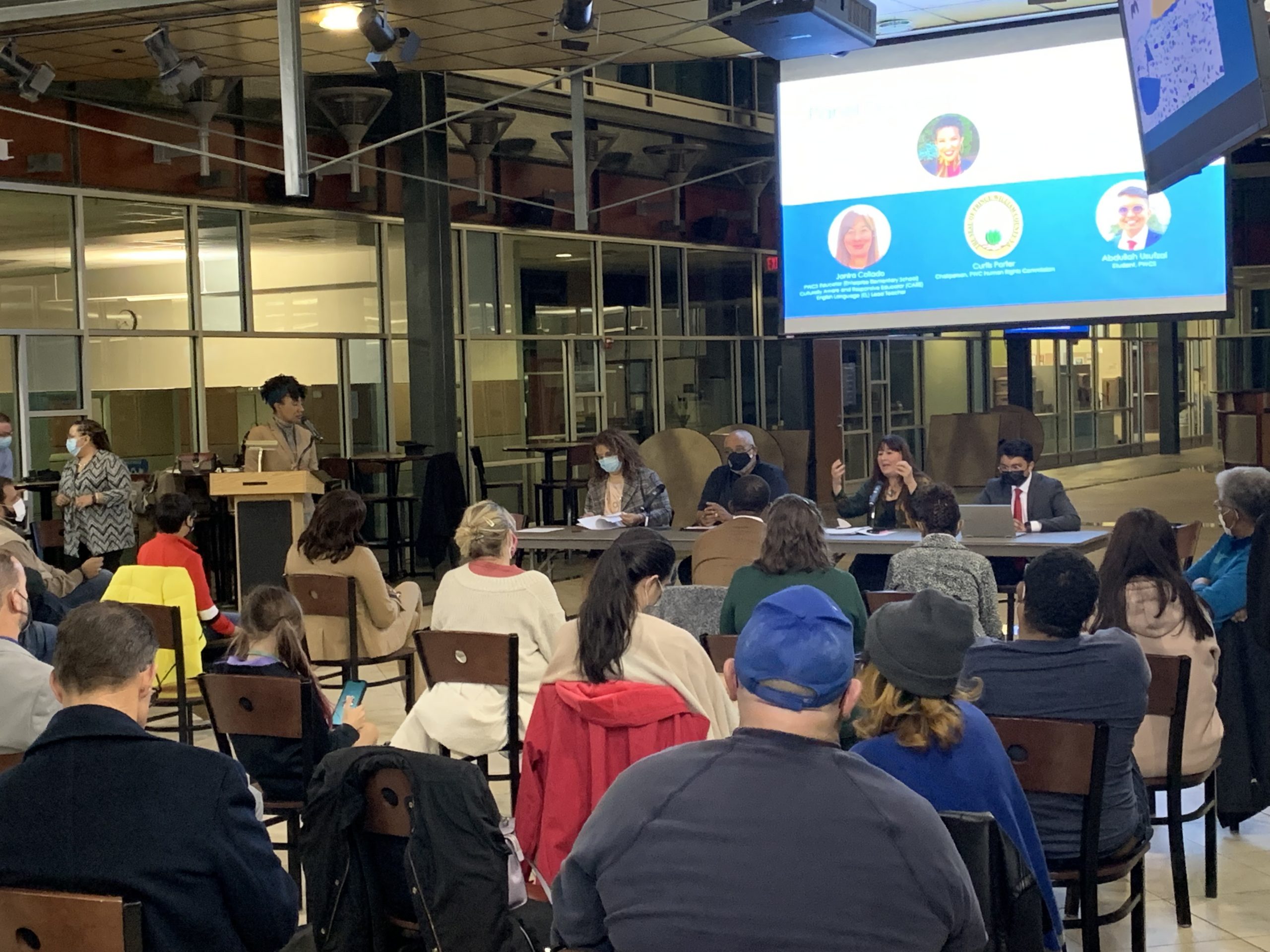How Culturally Responsive Instruction provides pathway to diverse education in Prince William County schools
“If a curriculum does not respond to a culture, then the culture won’t respond to the curriculum.”
Earlier this week Prince William County School Board Member Loree Williams (Woodbridge) hosted a townhall on culturally responsive instruction, with the goal of discussing what CRI is, and how it will empower educators, staff, students and the community to become better informed about an ever growing diverse population. She was joined by moderator Makya Little, who served on the Virginia Commission on African American History Education. In addition, Prince William County Equity and Inclusion Officer Maria Burgos, County Human Rights Commission Chairman Curtis Porter, Battlefield High School Student Abdullah Usufzai and Enterprise Elementary School ESOL teacher Janira Collado-Toro served as panelists during the discussion.
Culturally Responsive Instruction is a researched-based approach to teaching that connects students’ cultures, languages, and life experiences with what they learn in school. According to the Virginia Department of Education, CRI educators are those “who see the diversity in their classrooms as an asset and use their knowledge on students’ backgrounds to enrich educational experiences.”
The discussion came at a time in which the nation has become divided over what is taught in classrooms, particularly by GOP operatives and race baiters looking to use education as a political tool to win elections. It has resulted in numerous arguments over critical race theory, despite CRT being taught only at the graduate level. From Loudoun to Prince William County, school boards have become a battlefield for those seeking to suppress the truth that America is becoming more diverse than ever before. Although some of those same voices came to the townhall attempting to use the same rhetoric echoed by right-wing politicians on CRT, Williams astutely pointed that CRT was not on the agenda and that it is entirely different from CRI.
Although some measures had already taken place within the Commonwealth to include cultural competency training for teachers to developing a commission to diversify the curriculum, there was still more to be done, and the townhall gave the community a first-hand look at how culturally responsive instruction as a practice brings balance in the classroom. Despite the attempts of detractors, Williams, Little, and the panelists gave a thorough vision of how CRI will benefit schools in general. Several supporters agreed and spoke on why CRI is a must for Prince William County schools.
Afterwards Little talked to the PW Perspective about the large turnout and the amount of diversity in the audience. “I was actually impressed with the level of turnout and was happy to see a diversity of perspectives that was engaged tonight.”
What was the toughest question that she faced and how she navigated through it? “I would say the toughest questions that was involving Critical Race Theory because it’s a hot button topic, and one of the reasons I wanted to partner with Loree and host this event was because of the work we had done on the African American History Education Commission which was to pair our history with cultural competent educators to make sure teachers weren’t doing more damage than good when teaching this material.”
“I felt that the conversation has been skewed across the nation and it was important to have fact-based conversations and to say that we don’t teach CRT but what we are doing is equipping our teachers with the tools and cultural awareness to teach all students.”
What does she see as the future of Prince William County schools under this vision of Culturally Responsive Instruction? “I would hope that with three children in PWC schools we would also equip our teachers with the tools but also diverse our educators. My son goes to Colgan High School and he came home one day and said, ‘None of my instructors look like me,’ and that was new to him. I hope the county takes a holistic look at how inclusive and responsive it is to the myriad of cultures in our county.”

Williams spoke with the PW Perspective about how the townhall was a success. “What I want the community to walk away with is a better understanding of culturally responsive instruction is and how it provides benefits to all students within Prince William County schools,” said Williams, “and why it matters to education as a whole, and culture is all around us.” Regarding the more personable structure of having it as a townhall as a contrast to the more formal school board meetings, “I wanted to provide a format that was an educational opportunity for the community,” she responded. Williams hopes to have more town halls similar to this to provide further engagement.
Other community leaders discussed the importance of having the townhall and the necessity of cultural responsive instruction. Rozia Henson, Co-senior vice chair of the Prince William Democratic Party, brought up the personal impact it will have. “It was very informative,” said Henson. “I have nephews and nieces in Prince William County schools, and seeing how they are equipping teachers to be culturally responsive in their classrooms was new to me and I look forward to making sure that it’s being expounded upon to include all schools in the county.”
Porter expressed the events of the townhall as a positive force going forward. “I thought tonight was a good session and gave us the opportunity to talk about the diversity in the community and its education.”
“Things have changed a lot over the years, and we’re going to continue to diversify, and it will be important to have these conversations.”
He stated about the diversity of thought was communicated by those in attendance. “It was well received by the audience and some people have expressed their differences at other meetings, and we’re happy to have that discussion.”
So what is the goal going forward for the institution of culturally responsive instruction? “I think that as far as moving forward, this puts us as a model for what the nation is going to be, because Prince William County is one of the most diverse counties in the nation.”
“America’s diversifying, so we can be leaders in this prospect.”



